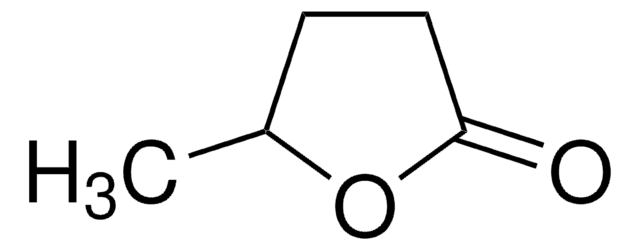Wichtige Dokumente
466123
Phosphorsäure
crystalline, ≥99.999% trace metals basis
Synonym(e):
Orthophosphorsäure
About This Item
Empfohlene Produkte
Dampfdichte
3.4 (vs air)
Qualitätsniveau
Dampfdruck
2.2 mmHg ( 20 °C)
5 mmHg ( 25 °C)
Assay
≥99.999% trace metals basis
Form
crystalline
bp
158 °C (lit.)
mp (Schmelzpunkt)
~40 °C (lit.)
41-44 °C
Dichte
1.685 g/mL at 25 °C (lit.)
1.830 g/mL at 25 °C
SMILES String
OP(O)(O)=O
InChI
1S/H3O4P/c1-5(2,3)4/h(H3,1,2,3,4)
InChIKey
NBIIXXVUZAFLBC-UHFFFAOYSA-N
Angaben zum Gen
human ... SRC(6714)
Suchen Sie nach ähnlichen Produkten? Aufrufen Leitfaden zum Produktvergleich
Verwandte Kategorien
Allgemeine Beschreibung
Anwendung
Verpackung
Sonstige Hinweise
Signalwort
Danger
H-Sätze
Gefahreneinstufungen
Acute Tox. 4 Oral - Eye Dam. 1 - Met. Corr. 1 - Skin Corr. 1B
Lagerklassenschlüssel
8B - Non-combustible corrosive hazardous materials
WGK
WGK 1
Flammpunkt (°F)
Not applicable
Flammpunkt (°C)
Not applicable
Persönliche Schutzausrüstung
Eyeshields, Faceshields, Gloves, type P3 (EN 143) respirator cartridges
Hier finden Sie alle aktuellen Versionen:
Besitzen Sie dieses Produkt bereits?
In der Dokumentenbibliothek finden Sie die Dokumentation zu den Produkten, die Sie kürzlich erworben haben.
Kunden haben sich ebenfalls angesehen
Verwandter Inhalt
Batteries, fuel cells, and supercapacitors rely on electrochemical energy production. Understand their operation and electron/ion transport separation.
Global Trade Item Number
| SKU | GTIN |
|---|---|
| 466123-25G | 4061832357416 |
| 466123-100G | 4061832357409 |
Unser Team von Wissenschaftlern verfügt über Erfahrung in allen Forschungsbereichen einschließlich Life Science, Materialwissenschaften, chemischer Synthese, Chromatographie, Analytik und vielen mehr..
Setzen Sie sich mit dem technischen Dienst in Verbindung.




